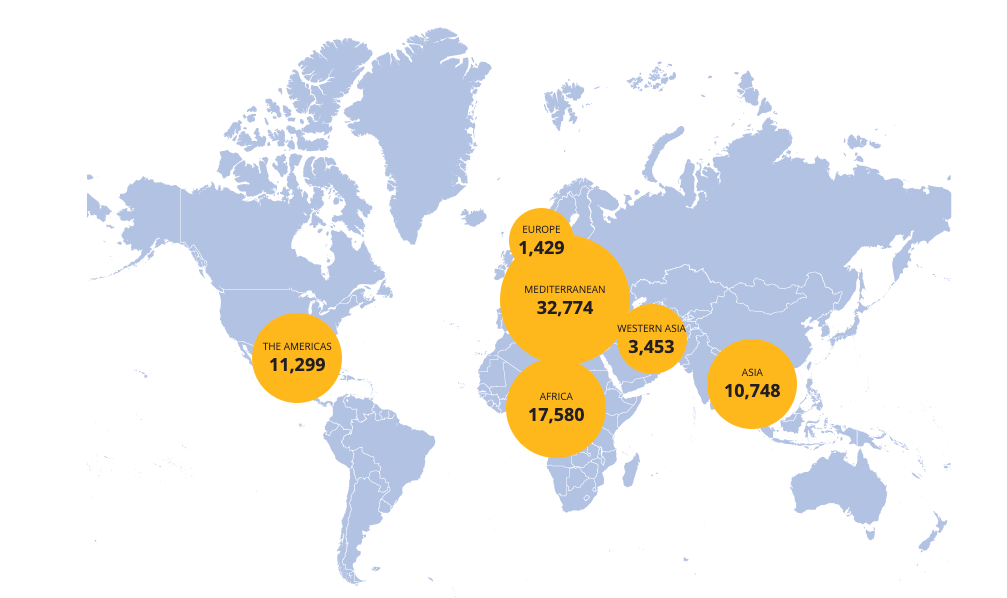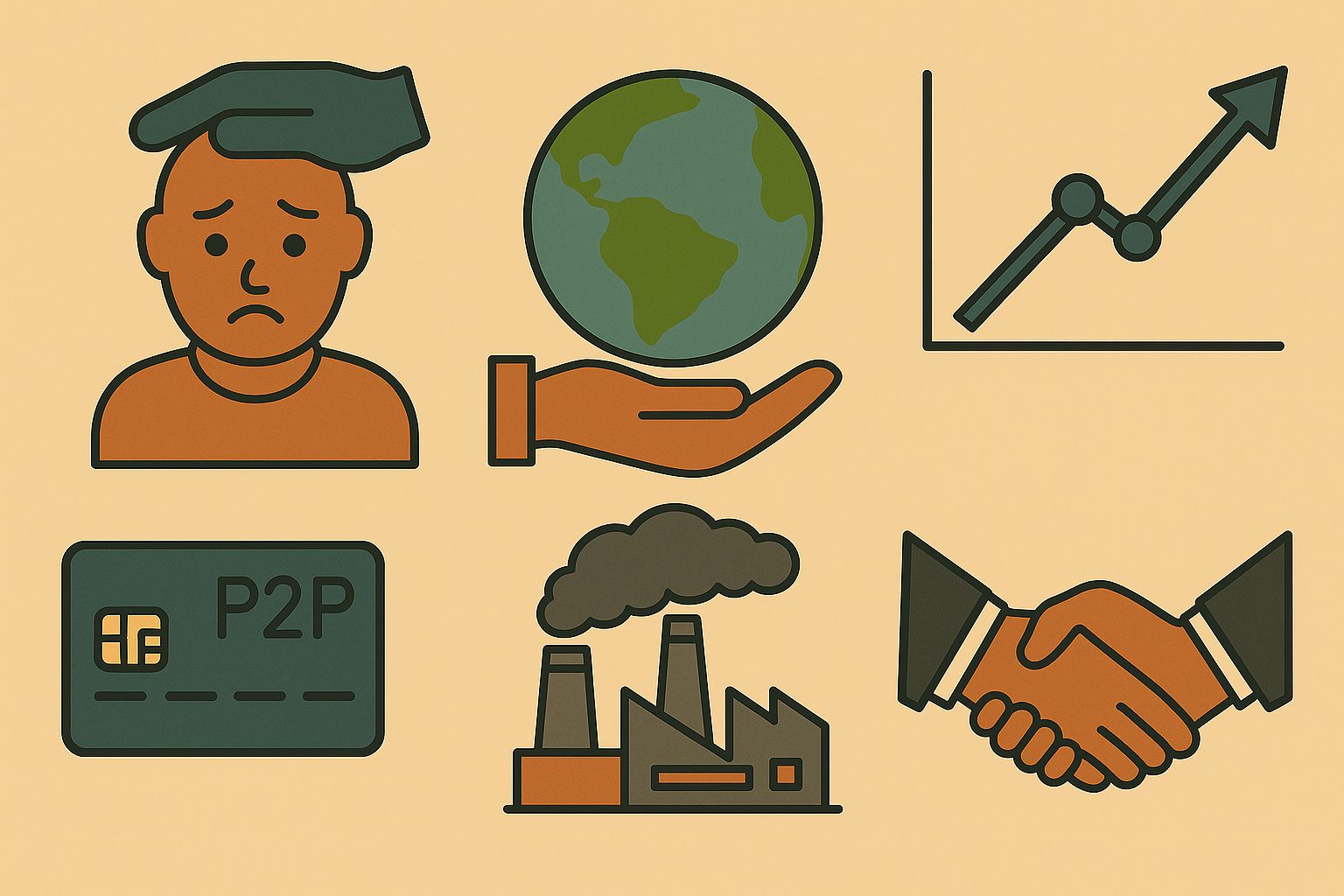
Hello, In today’s edition, we talking migration for work. The continued uncertainty and how it is making policy making much more difficult. This week’s edition is a bit heavy in content. This is deliberate as it is important to highlight the plight of the vulnerable and record how policy making can have immediate impact on people’s lives. Policy making, as politicians would have you think, is to make people’s lives better. To impose an order. The reality though is often different.
Before starting, some housekeeping. In the past few editions, I’ve been trying new formats of this newsletter and unfortunately all the metrics went into the wrong direction. After some soul searching, I am therefore reverting back to the previous format with some tweaks. The stories will be more human centred while keeping the focus on policy analysis. That edition will be sent on Friday evening or Saturday morning at 7am GMT time.
I will trial a mid-week edition that will be mostly AI written content with quick news bites - a special selection of policy news that will have medium to long term effects.
Thank you for reading The Policy Dispatch - Policy Analysis with humans at its core.
😢 Migration for work
💳 Integrated payment systems
📰 News Recap
The Value of a Human Life
😢 Forced Economic Migration Ends in Death
This story is based on the reporting done by the Afghanistan Analysts Network. It is the story of an Afghan named Muhammad - a father of eight young children. Muhammad was a farmer. He made a living planting poppies in Helmand province. After the Taliban came into power, the plantation of poppies was banned and so he tried to cultivate other crops. Due to lack of institutional support and droughts, his cultivations did not yield much. Frustrated by his attempts make a living, he decided to migrate to Iran to find work.
To put things in perspective, after the short war between Iran and Israel, Iran has started a campaign to deport thousands of Afghan refugees - a policy based on the suspicion that a few of them acted as spies for Israel.
As Muhammad tried to enter Iran illegally, he was shot and killed by border guards. He was buried a few days later in his village.
You can read the whole article by clicking here.
Why is this story important from a policymaking perspective ?
This is not the first nor the last story of such tragedy. While no data of such tragedies exist, it is estimated that every day, 28 million humans are in forced labour every single day and 123 million humans are forcibly displaced. The lack of specific data adds to the tragedy that it is not something that policymakers or international institutions track.
This further complicates the issue when economic migrants arrive in another country. The only route for economic migration today is mostly via legal routes that require substantial amounts of money, trusted contacts and documentations which often the most vulnerable do not have.
Last but not least, there is the human factor. Family lives are shattered. The human tragedy need to be told for policymakers to take into the human loss. Mainstream media published a lot of articles on the number of migrant worker deaths when the stadiums for the Qatar World Cup were being constructed. In general, this has led to improved conditions for those migrants in middle eastern countries. It is through information that pressure comes for change to happen.
What can be done?
The goal should not be to stop economic migration. Instead, international organisations can work towards:
offering immediate-life saving responses on dangerous migration routes.
Policymakers can work to expand safe migration routes so as to reduce the number of people taking dangerous routes.
There needs to be more data collected to know the full amplitude of the problem.
Current ongoing initiatives
The International Organisation for Migration (Which is a UN Body financed by Switzerland & the EU mainly) has an ongoing project to collect data and report missing migrants. The work, which started since 2014, accounts for 77,283 missing migrants since that year.

The ILO compiles data on forced labour and modern slavery statistics for many countries. Its work also helps it develop guidelines for national statistical institutions and coordinates work to better harmonise administrative and survey data.
The Trump Administration has cut funding for both those organisations. For the IOM alone, it represents a 30% drop in their funding. You can donate now to continue this vital work.
Without Data —> No Reporting —> More Bad Policies go unchallenged …
Receive Honest News Today
Join over 4 million Americans who start their day with 1440 – your daily digest for unbiased, fact-centric news. From politics to sports, we cover it all by analyzing over 100 sources. Our concise, 5-minute read lands in your inbox each morning at no cost. Experience news without the noise; let 1440 help you make up your own mind. Sign up now and invite your friends and family to be part of the informed.
Payments
💳 How COMESA’s Digital Payment Platform Could Shift Africa’s Trade Structure
What is COMESA?
It is a regional economic community established in 1994. It is one of Africa’s largest regional blocs comprising of 21 members. It is designed to promote economic integration through trade and investment.
What’s happening?
The organisation has launched the trial of retail payments across member states. Initially, the trial will take place between Malawi and Zambia. The aim is to settle trades in local currencies
The long term implication
If successful and launched at scale, it will undercut the reliance on U.S. dollar conversions, reduce costs for SMEs and deepen intra-African trade.
Challenges?
Exchange rate volatility and liquidity management are the two main obstacles to overcome. Political will and monetary coordination is key.
Read more : click here
In other Policy News
📰 Policy News
Madagascar Youth Protests Escalate
Young Malagasy protesters are demanding President Andry Rajoelina’s resignation over economic hardship and corruption. This matters because it signals a broader generational revolt in African politics, echoing Morocco’s Gen Z mobilisation. The protests expose deep youth unemployment and governance failures despite earlier reform promises.South Africa Seeks $500 Million in Novel Financing Instruments
Pretoria invited proposals for a $500 million foreign-currency funding initiative. It’s significant as South Africa tests new sovereign instruments—blending ESG bonds and structured loans—to offset tightening global credit. The move reflects a continent-wide shift toward diversified, non-traditional financing amid rising debt service costs.World Bank Upgrades Sub-Saharan Growth Forecast
The World Bank raised regional growth expectations to 3.8% for 2025, citing falling inflation and stronger currencies. This matters because it marks the first broad upgrade since 2021, signaling post-pandemic stabilization. Yet high debt, youth unemployment, and commodity volatility remain key drags on inclusive growthNamibia Approves 3 GW Solar-Hydrogen Project
Namibia confirmed development of a 3 gigawatt solar plant for green-hydrogen production. It’s crucial because it positions the country as a continental leader in renewable exports and decarbonisation. This reflects Africa’s emerging role in global green-energy supply chains.Morocco and Rwanda Sign Air-Services Pact
The two governments agreed on new direct air links to enhance trade and tourism. The deal strengthens South–South connectivity and logistical integration within Africa. It’s part of the continent’s wider effort to expand intra-African transport infrastructure.European Union Pledges $600 Million for African Clean-Energy Projects
The EU’s Global Gateway initiative will channel major investment into African renewables and grid infrastructure. The program aims to counter China’s Belt & Road dominance. The question though, is how much of that money will remain in African economies ?
Number
🔢 This Week’s Number
700
The Africa Centres for Disease Control and Prevention (CDC) has launched the African Manufacturing Market Intelligence & Network Analysis Platform (AMMINA). It maps over 700 health-products manufacturers and more than 2,500 products.
By aggregating supply chain, capacity and product data on one platform, AMMINA gives policymakers a tool to strengthen regional health manufacturing, reduce imports and guide investments.
In an era of funding cuts, Africa has to build its way to prosperity.
Goodreads
📖 This Week’s interesting articles




